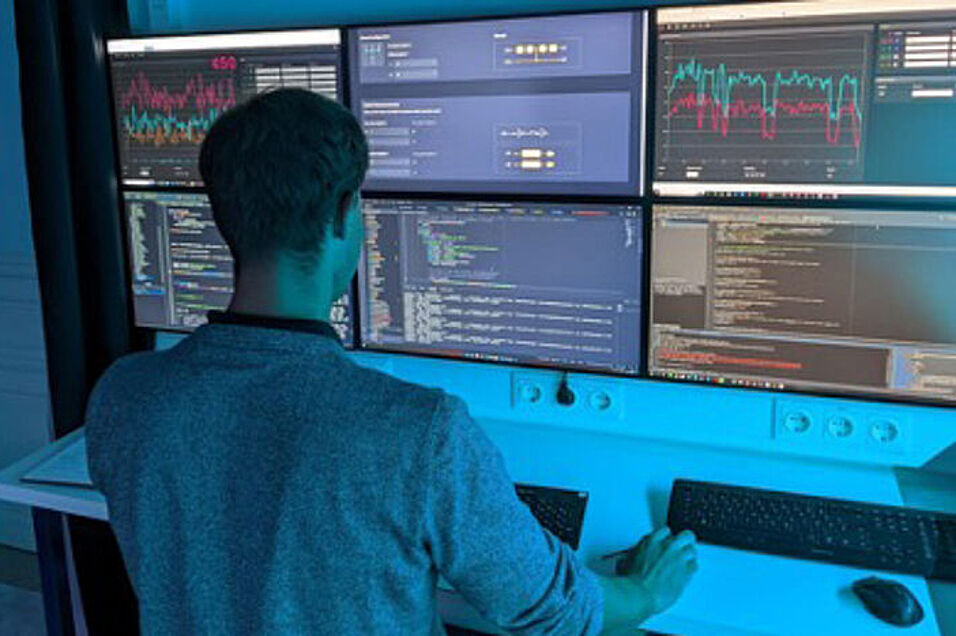"I am proud that PhotonQ is the first online quantum computing platform in mainland Europe backed by real photonic hardware. Our platform was built to complement the landscape of online quantum computing services in Europe with an optical platform, and we look forward to the innovations and applications that will emerge from the system.", says CDL project leader Prof. Philip Walther at the University of Vienna.
Quantum computers have proven their potential to outperform classical computers within the past decade. They are rapidly becoming a key technology that promises powerful applications in areas such as logistics, finance, medicine, and AI due to their ability to solve specific problems that even the world’s most powerful supercomputers cannot solve.
European companies, universities and governmental institutions show increasing interest in quantum hardware. Above all, the PhotonQ platform focuses on providing first-hand experience of quantum computing research and photonic hardware to a broader audience. Until the end of the project in 2027, different experiments in the laboratory, with increasing number of optical qubits and varying designs for a special purpose and a universal quantum computer, will become available. This ranges from laser setups pumping semiconductor-based single-photon sources to the actual photonic quantum processor, backed up with hardware access or simulations out of experimental studies.
"Universities are different to companies as the focus is on high quality research that allows for experimental flexibility, which is in contradiction to offering 24/7 access to a dedicated quantum hardware. Via PhotonQ we are offering a new online approach to an ever-growing interested public audience by providing access to real physical experiments using photonic quantum computers. Basically, people get online access to present research achievements", says Dr. Tobias Guggemos, postdoctoral researcher at CDL and lecturer for quantum computing at the University of Munich.
As a first step, the PhotonQ platform provides a graphical user-interface to simulate a photonic quantum processor with 4-qubits, and grows with the current experimental platform in the laboratory. By setting several parameters in this web interface, users can determine the quantum circuit they want to execute, which makes programming effortless even for quantum newcomers.
"The ultimate goal of quantum computing is not to solve circuits made up of 4 qubits, but to outperform classical computers in solving problems of practical interest. However, our move allows all interested users, from individuals to corporate users around the world, to experiment for free with a photonic quantum computer via the PhotonQ web interface", says Felix Zilk, Master student working on the PhotonQ project.
Unlike traditional computers where the technology is settled, the race for the most suitable quantum platform is still ongoing and several different technologies, including superconducting qubits, ion traps, optical qubits, and spin systems, have been released in the past. The CDL chose to start with the polarization of photons. Unlike a classical bit, which is either "0" or "1", the polarization of a single photon can be in a linear combination of horizontal and vertical, making photon polarization a natural candidate for a quantum bit (qubit). These qubits are manipulated using optical elements such as polarizing beam splitters and waveplates, for example.
"Our platform is unique with the type of photon source we use. We plan to exploit multiple degrees of freedom of single photons collected from solid-state quantum emitters, to realize discrete variable optical qubits. This makes us the first online platform in the world to offer such an implementation. A key challenge of our platform currently remains in the scalability and creation of large, entangled states beyond dozens of qubits", says Dr. Juan Loredo, lead scientist at the Christian Doppler Laboratory.
About the CDL
Located at the University of Vienna, the Christian Doppler Laboratory for Photonic Quantum Computing is focused on photonic platforms for quantum information processing. Philip Walther's research group is pioneering the field of photonic quantum information processing, and the goals of this new laboratory include the investigation of novel multiphoton processing schemes as well as the development of optical quantum computing technology, including software and applications.
University of Vienna launches first online-accessible photonic quantum hardware in Europe
08.09.2022

